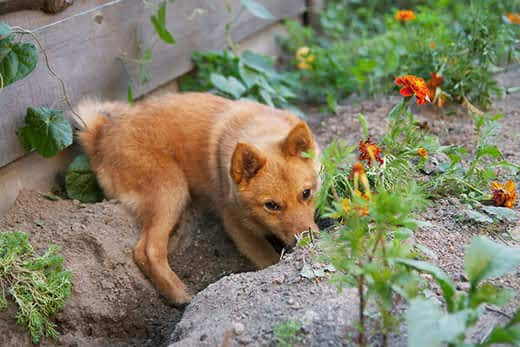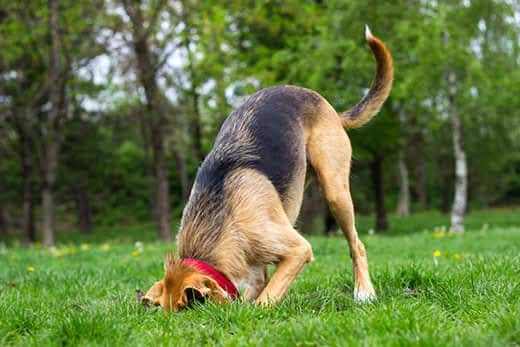
-
Find the right food for your pet
Take this quiz to see which food may be the best for your furry friend.
Find the right food for your pet
Take this quiz to see which food may be the best for your furry friend.
Featured products
 Adult Healthy Cuisine Roasted Chicken, Carrots & Spinach Stew Dog Food
Adult Healthy Cuisine Roasted Chicken, Carrots & Spinach Stew Dog FoodDelicious roasted chicken paired with tender vegetables in a succulent stew
Shop Now Adult 7+ Perfect Digestion Chicken, Whole Oats & Brown Rice Recipe Dog Food
Adult 7+ Perfect Digestion Chicken, Whole Oats & Brown Rice Recipe Dog FoodScience Diet's breakthrough nutrition supports ultimate digestive well-being & healthy microbiome for dogs age 7+
Shop Now Small & Mini Savory Stew with Chicken & Vegetables Dog Food
Small & Mini Savory Stew with Chicken & Vegetables Dog FoodA delicious complement to the nutrition of Science Diet Small & Mini 7+ dog food
Shop NowFeatured products
 Adult 7+ Senior Vitality Chicken & Vegetable Stew Cat Food
Adult 7+ Senior Vitality Chicken & Vegetable Stew Cat FoodImproves Everyday Ability to Get Up & Go
Shop Now Adult Savory Entrée Can Variety Pack Cat Food
Adult Savory Entrée Can Variety Pack Cat FoodPrecisely balanced nutrition with the delicious taste of savory minced chicken to help fuel the energy needs of cats during the prime of their life
Shop Now Adult 7+ Tender Tuna Dinner Cat Food
Adult 7+ Tender Tuna Dinner Cat FoodWith delicious chunks in a decadent gravy
Shop Now -
Dog
- Dog Tips & Articles
-
Health Category
- Weight
- Food & Environmental Sensitivities
- Urinary
- Digestive
- Joint
- Kidney
-
Life Stage
- Puppy Nutrition
- Adult Nutrition
- Senior Nutrition
Cat
- Cat Tips & Articles
-
Health Category
- Weight
- Skin & Food Sensitivities
- Urinary
- Digestive
- Kidney
-
Life Stage
- Kitten Nutrition
- Adult Nutrition
Featured articles
 Do Dogs and Cats have Belly Buttons?
Do Dogs and Cats have Belly Buttons?Learn whether cats & dogs have belly buttons like humans, what the function is, and if there are any health concerns associated with it.
Read More Does My Pet Hate Me?
Does My Pet Hate Me?Learn tips for bonding with your pet if you've ever thought, 'My dog doesn't like me, or 'Why do I have a standoffish cat?'
Read More Why Are Dogs and Cats So Cute?
Why Are Dogs and Cats So Cute?If waggy puppy dog tails and furry kitten yawns make you swoon, you're not alone. Why are cats so cute? And, dogs too! Let's find out!
Read More -


A digging dog can destroy your yard, track mud and dirt into your house and force you to drop everything to give them a bath. Even worse, if your digging dog is tunneling under a fence to escape, this can place them in danger. If you're fed up with your dog's behavior, keep reading to learn how to stop a dog from digging.
Why Do Dogs Dig Holes?
 Understanding why your dog digs is an important step in minimizing this behavior. Here are the most common reasons why dogs dig.
Understanding why your dog digs is an important step in minimizing this behavior. Here are the most common reasons why dogs dig.
Instinct
Digging is an instinctive behavior dogs inherited from their wolf ancestors, points out the American Kennel Club (AKC). All dogs dig to some extent; it comes as naturally to them as barking or wagging their tails. Even if your dog is not a problem digger, you've most likely seen them "dig" in their bedding or sofa cushions before lying down.
Seeking Prey
Dogs with a high prey drive are likely to dig in order to go after rodents or other small animals they can hear or smell underground. This is especially true of terriers and small hound breeds such as dachshunds, who were bred to hunt rodents and small game.
Comfort
In hot weather, dogs will sometimes dig themselves a spot in the dirt to lie down in and cool off. Larger dogs with thick coats who are bred for colder weather, such as the Siberian husky, are particularly prone to this behavior, says AKC.
Boredom and Anxiety
One of the most common answers to the question of why dogs dig holes is that it's just plain fun. For dogs, digging is a great way to relieve boredom or distract themselves from anxiety, says The Spruce Pets. Often, chronic digging can be a sign that your dog isn't getting enough physical activity or mental stimulation.
Hiding Treasure
Some dogs like to bury treasures, such as a treat or a favorite toy, for safekeeping. Unfortunately, they don't always remember to make a treasure map, which leads to more digging as they search for their hidden cache.
Escape
If your dog feels compelled to leave your yard, tunneling under the fence is usually easier than finding a way over it. Typically, this type of tunneling behavior is prompted by wanting to get to something on the other side of the fence, such as another dog.


Tasty Tips
How To Stop a Dog from Digging
 Because digging is so deeply ingrained in dogs, it's unlikely that you'll be able to put a complete stop to it. But you can minimize the behavior and reduce the damage to your yard by following these tips.
Because digging is so deeply ingrained in dogs, it's unlikely that you'll be able to put a complete stop to it. But you can minimize the behavior and reduce the damage to your yard by following these tips.
Place obstacles and deterrents where your dog likes to dig. This might include burying chicken wire along fences, placing rocks or paving stones in garden beds, or planting bushes around the perimeter of the yard.
If your male dog is an escape artist, having him neutered will reduce his desire to roam.
Designate a spot where it's okay for your pooch to dig. A sandbox can work great for this if your dog likes to dig for fun, suggests Rover.com.
Provide an outdoor bed in a shady spot for dogs who like to dig to cool themselves off. Redirect them to this spot when you catch them digging.
If you have a dog with a strong prey drive, controlling the rodent population in your yard will help reduce their temptation to dig for prey. Avoid using poison, which could end up getting transferred to your pup.
Don't allow your pup to take treats or toys outside if they like to bury them.
Provide plenty of mental and physical stimulation to help reduce the drive to dig. High-energy dogs like terriers need at least 30 minutes to an hour a day of activity and exercise, which can include walking and playing games like fetch, says The Spruce.
- While it's not possible to watch your dog every moment, try not to leave them in your yard unsupervised more than absolutely necessary. If your dog is digging to relieve separation anxiety, consider acclimating them to stay in a crate while you're gone, along with interactive toys to keep them occupied.
While it's unlikely that you'll completely dig-proof your dog, you can certainly dig-proof your yard to minimize damage and maximize your dog's safety. By channeling your dog's digging urges into more productive and less destructive activities, you and your pooch will both be happier.


Jean Marie Bauhaus is a pet parent, pet blogger, and novelist from Tulsa, Oklahoma, where she usually writes under the supervision of a lapful of fur babies.
Related products
Related articles

Learn about choosing the right dog food to help ensure your adult dog will receive the correct balance of nutrition.

Learn how today's wet dog food blends have gotten a face lift, and how you'll provide your dog the nutrition he needs in the form he loves.

Learn the the dangers of feeding your dog chocolate, which types are most dangerous, and what to do if you discover that they have consumed chocolate.

Proper nutrition for your pregnant or nursing dog is vital to her and her puppy's health. Learn what you should do provide her with the proper nutrients.

Put your dog on a diet without them knowing
Our low calorie formula helps you control your dog's weight. It's packed with high-quality protein for building lean muscles, and made with purposeful ingredients for a flavorful, nutritious meal. Clinically proven antioxidants, Vitamin C+E, help promote a healthy immune system.
Put your dog on a diet without them knowing
Our low calorie formula helps you control your dog's weight. It's packed with high-quality protein for building lean muscles, and made with purposeful ingredients for a flavorful, nutritious meal. Clinically proven antioxidants, Vitamin C+E, help promote a healthy immune system.

